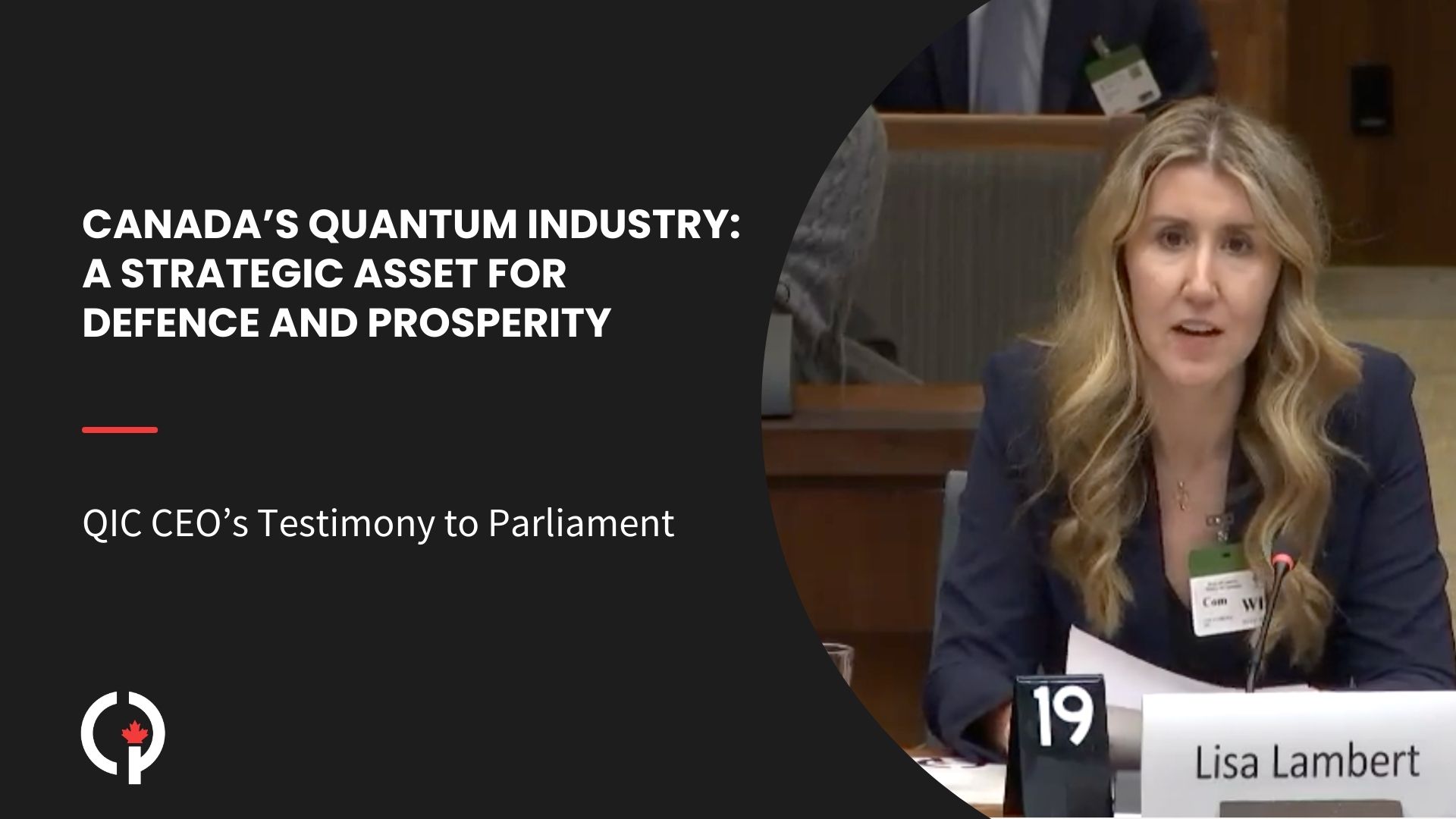Securing Prosperity and Sovereignty in Budget 2025
Quantum is not next — it’s now.
Quantum technologies are moving from labs into markets and defence systems, reshaping global value chains, economic competition, and national security. Around the world, nations are accelerating forward with bold commitments, strategic intent, and large-scale industrial strategies to secure their place in the quantum future.
Canada was an early leader, building one of the world’s strongest research foundations and vibrant commercial ecosystem. Now is the time for a renewed focus to ensure we remain globally competitive: moving from research leadership to industrial strength, and securing sovereign capabilities that anchor us in trusted global value chains. Without equally decisive action, Canada risks being left behind as others set the pace and define the rules of this transformative era.
QIC’s 2025 pre-budget submission calls for urgent, catalytic action. With six strategic recommendations, we outline how Canada can reset its trajectory — securing sovereign capabilities, creating high-value jobs, and ensuring our industry is embedded in trusted global value chains.
This is a nation-building mission that speaks directly to the federal government’s commitment to build the strongest economy in the G7, strengthen defence and sovereignty, and redefine Canada’s role in a world of rising geopolitical risk and profound economic transformation.
And this is about more than quantum. It is about how Canada approaches all frontier technologies moving forward and whether we can finally overcome structural barriers that have too often kept Canadian discoveries from becoming Canadian industries.
QIC’s Six Strategic Recommendations for Budget 2025
1. Reboot Canada’s Quantum Strategy: Make It Industry-Led and Globally Competitive
Launch an industry-led NQS 2.0 that is mission-oriented, recapitalizes programs to globally competitive levels, modernizes tools like ISC and IDeAS, creates a direct investment vehicle for critical value-chain nodes, and includes a national quantum IP strategy.
2. Use Defence to Drive Sovereign Quantum Capabilities
Defence is one of the earliest and strongest markets for quantum. Canada must integrate quantum into the Defence Industrial Strategy, use defence as a first customer, establish a Defence-Quantum Capabilities Lab, and prioritize Canadian firms in the government’s post-quantum cryptography (PQC) migration — strengthening both sovereignty and allied interoperability.
3. Scale Canada’s Quantum Industry Growth Hub
The NQS pilot investment in QIC has proven the value of a national industry-led hub. With funding now ending, Budget 2025 should scale QIC into a fully resourced Growth Hub to coordinate efforts, build domestic and international commercial pathways, and promote Canada’s capabilities to attract customers, talent, and investment.
4. Launch an Advanced Manufacturing Strategy for Quantum and Frontier Systems
Quantum requires physical systems — photonics, cryogenics, semiconductors, advanced packaging. Canada has a head start, but leadership requires scaling and industrialization. A national strategy for advanced manufacturing would reinforce sovereignty and supply chain resilience while also advancing adjacent frontier sectors.
5. Make Quantum a Pillar of Canada’s Trade Diversification Strategy
Quantum is a strategic capability, and trade policy must treat it as such. Canada should make quantum a priority in its Trade Diversification Strategy, extend digital partnerships to support commercial opportunities, expand Team-Canada quantum missions, and back Canadian industry in shaping international standards.
6. Deliver Quick Wins to Strengthen Canada’s Economy and Sovereignty
Alongside bold measures, low-cost and even cost-saving actions can have impact: fast-track immigration for talent, integrate quantum into digital infrastructure investments, cut program bottlenecks, promote Canada’s sector internationally, build government literacy, and modernize tax credits.




